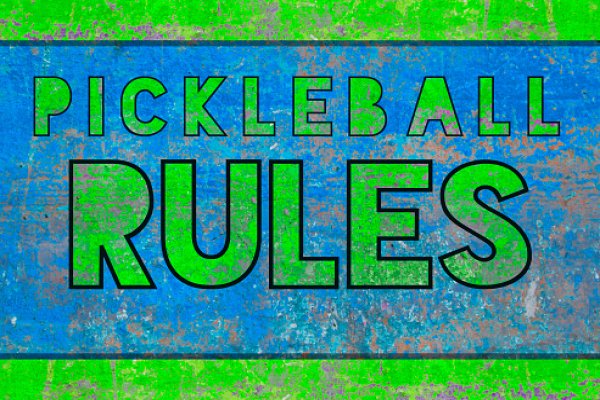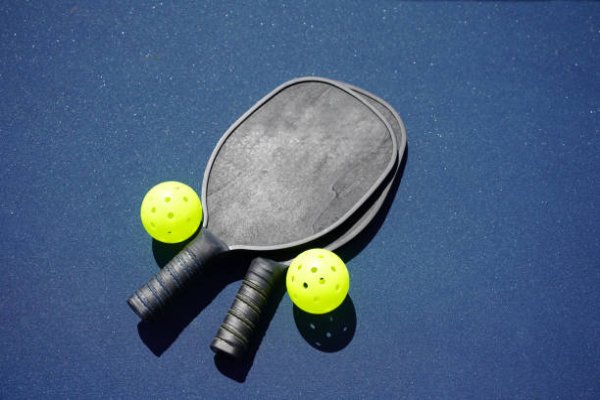Ever wondered why it’s called Pickleball? I did too, and the story behind it is as fascinating as the game itself. This quirky name has its roots in a fun, family-friendly pastime that’s now taken the sports world by storm.
Pickleball’s origin is a tale of innovation, creativity, and a touch of whimsy. While the name might sound odd to some, it’s a perfect representation of the game’s unique charm and appeal. Let’s delve into the intriguing history of how Pickleball got its name.
Whether you’re a seasoned player or just hearing about it for the first time, you’re in for a treat. This isn’t just a game; it’s a cultural phenomenon with a name to remember. Buckle up as we explore the story behind Pickleball’s unforgettable moniker.
Origins of Pickleball
As we delve into the history of Pickleball, we uncover a story deeply rooted in family fun and community spirit. The birth of Pickleball dates back to the summer of 1965 when then Congressman Joel Pritchard and his friend Bill Bell, both of Bainbridge Island, Washington, set out to entertain their kids who were bored with their usual summer activities.
Armed with ingenuity and an anything-goes approach, they looked around Joel’s property for easily available equipment. They found some old badminton racquets and a perforated plastic ball. But alas, they couldn’t locate the badminton net! With their DIY spirits high, they lowered a net on a badminton court to the ground and forged a whole new game. This is how Pickleball, came to life.
It is said that ‘Pickleball’ is named after the Pritchards’ dog, Pickles. The dog loved chasing after the ball during the game, hence the name. However, Joan Pritchard, Joel’s wife, claims the game was named after the term ‘pickle boat,’ used in rowing, where a boat was filled with crew members not from the same team.
Regardless of the origin of the name, Pickleball has spread from a simple backyard summer game in Bainbridge Island to gaining incredible popularity across the globe. It’s a game that binds communities together, creating an atmosphere full of fun, togetherness and surprisingly competitive spirit.
Let’s move forward and look into the rules and gameplay to better understand what makes this game so appealing to many and why it continues to experience such explosive growth.
The Quirky Name
Now that I’ve shared the game’s interesting origin story, let’s dive more in-depth into the mystery behind it’s catchy title. This section will cover the intriguing story behind the harmoniously quirky name: Pickleball.
A Dog or a Boat?
There’s some friendly disagreement around how this delightful sport got its name – two stories prevail, one about a dog and another about a boat. Some claim that Pickleball actually gained its name from the Pritchards’ dog, Pickles. This legend goes that whenever the ball went out of play, Pickles had quite the habit of pouncing on it. He’d then take off with his loot, leaving the players chasing after him. It’s a heartwarming image – one that’s easy to want to believe.
There’s another account that’s a little less whimsical but ties neatly into maritime history. In the rowing world, a “pickle boat” is usually a team that’s mixed together at the last minute – a sort of thrown together mishmash of rowers. It’s purported the game’s name could be linked to this term to reflect its hodgepodge origin, with its blended rules from badminton, table tennis, and tennis.
The name “Pickleball,” regardless of its real origin, did indeed stick and provides a distinctive, memorable moniker for the game. Not a commonly used term, it piques curiosity and generates many questions when people hear it – just one of the many factors that has helped the game to spread.
Surge in Popularity
Since its humble beginnings on a modified badminton court, Pickleball has exploded in popularity. This fact couldn’t be more evident than in the rapidly increasing numbers of players in recent years.
Yet, whether Pickles is the rightful namesake or if the game actually traces its name to a rowing term, the sport’s essence remains grounded in what made it so appealing in the first place. It’s all about community, fun, competition, and ironically, the engagement it received due to its name.
As we continue our discussion, the next stop on our little tour will be the mechanics of playing Pickleball. There, we’ll discuss the gameplay, rules, and the special equipment it takes to play this increasingly popular sport.
The Game’s Unique Charm and Appeal
As we dive deeper into the intriguing game of Pickleball, it’s crucial to explore what makes this sport so alluring. My personal experiences, coupled with the feedback from countless players worldwide, led me to believe that there’s a unique charm and appeal about Pickleball that’s rarely found in any other sport.
Primarily, the simplicity of Pickleball is its main draw. With rules easy enough for anyone to comprehend within a few hours of practice, it’s an incredibly accessible activity. There’s no need for massive amounts of equipment, and players can hone their skills without investing in high-cost gear.
Another factor contributing to the game’s allure is the sense of community. Pickleball isn’t just a game — it’s a social event where players develop friendships and compete in a friendly, encouraging environment.
In the same breath, it’s also worth mentioning that Pickleball successfully straddles the line between casual fun and competitive play. Serving a fun pastime for some, others participate in challenging tournaments at various levels, thus catering to a range of player’s preferences and abilities.
An integral part of the sport’s attraction also lies in its versatility. Players can play both indoors and outdoors, perfect for adjusting to different environments and weathers.
Looking at these factors, it becomes clear why Pickleball has obtained a charm that holds players tight. Its dual-edge sword of simplicity and competitiveness, its spirit of community, and an all-weather versatility is a unique combination that continues to attract people from all walks of life.
Next, we’ll unravel the mechanics behind playing Pickleball, including its gameplay, rules, and what sort of equipment one requires.
The Intriguing History of How Pickleball Got Its Name
The history behind how pickleball got its name is really two stories, both fascinating and slightly quirky. I absolutely enjoy illuminating these accounts as they contribute to the charm of this rapidly growing sport.
The first story goes that one of the inventors, Joel Pritchard, had a dog named Pickles. The dog was apparently fond of running off with the whiffle ball, causing a fair bit of playful disruption during games. So, they eventually started calling the game “Pickles’ Ball”, and over time, it simply became known as pickleball. It’s a story that many believe because it’s amusing and the imagery of a dog running off with the ball is an endearing one.
However, the second narrative is a little less cute and a little more sports-oriented. Joel Pritchard’s wife, Joan, was a competitive rower. She argued that pickleball was similar to the “pickle boat” in crew where oarsmen were picked from the leftovers of other boats. Just like the pickle boat, pickleball also started as a fusion of different games—tennis, badminton, and table tennis in this case. She alleges that it’s the nature of the game and not the family dog that led to the name we know today.
Whether you prefer the image of the mischievous dog or the sport amalgamation story, both explanations have certainly added to the allure of pickleball. While we may never know the real story behind its unusual name, it’s clear that pickleball is more than just a game with a funny name. It’s become a sporting phenomenon that encourages community, fun, and competition.
Pickleball: A Cultural Phenomenon
As we navigate through the history behind the name “Pickle” in Pickleball, it’s also crucial to delve into the reasons why this game has now become a cultural phenomenon. I’m sure you’re intrigued and can’t wait to learn what’s behind this phenomenon.
First up, let’s talk about its easy accessibility. Unlike other sports that require a massive playground or specialized equipment, Pickleball doesn’t ask for much. All you need is a paddle, a ball, and a net – equipment that’s easy to manage and affordable. This easy-to-play aspect has made it more inclusive, reaching a wider age group and varied fitness levels.
Here’s the list of the basic equipment required for Pickleball:
- Paddles
- Ball
- Net
Next, consider the growth in the number of Pickleball players. Over the past five years, the number of people playing Pickleball has exponentially grown. Let me share a small dose of statistics to validate this:
| Year | Number of Players |
|---|---|
| 2017 | 2.8 million |
| 2018 | 3.1 million |
| 2019 | 3.3 million |
| 2020 | 4.2 million |
| 2021 | 4.8 million |
Amazing, isn’t it? This rise isn’t just confined within the United States, but it’s also expanding globally.
Finally, the community experience provided by Pickleball is unique. It’s not just hitting the ball back and forth. It’s also about building friendships, developing team spirit, promoting healthy competition and most importantly, having a good time. It’s this factor that truly brings out the ‘cultural’ in the ‘phenomenon’.
In other articles, I’ll introduce you to the inner workings of this game – the gameplay, rules, and techniques that are vital to Pickleball. How exciting! Stay tuned, as we delve deeper into the marvels of Pickleball.
Conclusion
So, we’ve delved into the fascinating history of Pickleball and pondered the curious origins of its name. Whether it’s named after a dog or a rowing term, it’s clear the game has made a lasting impact. Its recent surge in popularity underscores the appeal of its community spirit, competitive edge, and fun-filled atmosphere. The rise of Pickleball as a cultural phenomenon is testament to its accessibility and the unique experience it offers players. As we move forward, I’m excited to delve into the mechanics of this captivating game, exploring its gameplay, rules, and techniques. Stay tuned to work on becoming a Pickleball pro!














0 Comments